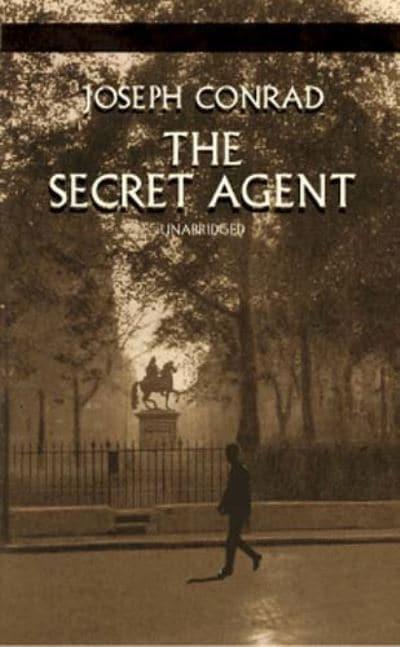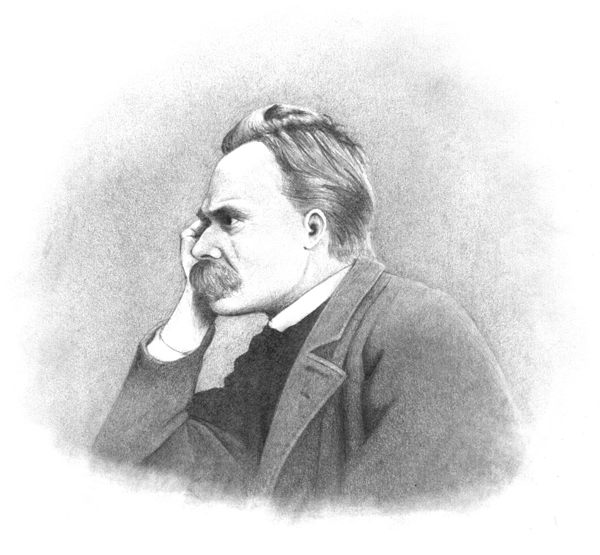
Joseph Conrad and Fyodor Dostoevsky are at one in their
abhorrence of anarchists and social revolutionaries. In them, they see a
nihilism which ends only in the self-fulfilment of Silenus’s words of wisdom –
existence itself is tainted, and the best thing is to be done with it. Thus,
the conclusion of Conrad’s The Secret Agent takes place in a beer-hall
called, ironically, the Silenus. The world those revolutionaries Ossipon and
The Professor are seeking to transform is itself already sordid – late
nineteenth century London, down among the lower orders, wallowing in the
murkiness of espionage and paid agents provocateur – and therefore, it seems,
whatever the outcome of their anarchistic endeavours, be they successful or
otherwise, the world will be no less and no more sordid, only different.
Mr Verloc, the novel’s central character, is someone
engulfed by indolence. He has the air of ‘having wallowed, fully dressed, all
day on an unmade bed.’ He is an agent provocateur, what we would nowadays call
a sleeper, in the pay of a foreign power and providing information, waiting to
act as required but, in fact, doing an absolute minimum to earn his pay. A
change in personnel at the embassy forces his hand: he is impelled by his new
boss, Mr Vladimir, to engineer a terrorist outrage, a meaningless explosion at
the Greenwich Observatory – an attack on the first meridian, that potent symbol
of science and progress. Mr Verloc is unhappy with his assignment, but he has
no option but to obey. Tragedy ensues.
In his time in England, Mr Verloc has inveigled himself into
English (lower order) society. He is married to Winnie and shares her house
with Winnie’s mother, a frail and fading woman, and Winnie’s brother, the
slow-witted Stevie. Ostensibly, he is the proprietor of a shop which has a
reputation for dealing in unusual and illicit, probably pornographic material
smuggled in from the continent. It is a comfortable living, requiring no great
effort on Mr Verloc’s part, and this forms part of his irritation at being
forced to act on behalf of his paymasters. Thus, the character of Mr Verloc
comes under Conrad’s critical gaze twice over: as a reckless anarchist and as a
laggard whose indolence results in moral apathy. His response to the tragedy he
provokes is one of vexation, momentary shock, fleeting regret, but his
overriding impression is that it was inconvenient, and not his fault, and
something that had happened which simply had to be overcome. His inability to
comprehend the emotions of his wife are symptomatic of a morally casual,
reprehenisble nature. Mr Verloc is found wanting, in almost every respect. But
he is not an evil man, he is merely banal. Through him, and those like him,
Conrad argues, evil is allowed to flourish.
Around Verloc is a small congregation of fellow anarchists
and revolutionaries – Michaelis, Yunt, Comrade Ossipon – who share his outlook
and demeanour. They are not an attractive group of people. Future society would
not be safe in the hands of such immoral louts, one must suppose. And what is
the alternative? Conrad offers little hope in the figures of authority who are
ranged against the anarchists. Mr Vladimir, Verloc’s master at the Embassy, is
a calculating, manipulative man, callously indifferent to anything but the
cause. The police investigation is hampered by protocol and hierarchy and
suspicion. Verloc, we discover, as well as being an agent of a foreign power,
is also a double agent providing information to the police, who are happy to
use him and turn a blind eye to the illicit wares he peddles. These are two
sides of a single coin, then, Conrad suggests.
And Mrs Verloc is little better. She is resolute in her
refusal to see anything that is happening around her, to probe for questions or
meanings, to wonder at any events which may unfold. She deliberately encases
herself in a cocoon of ignorance, as though she can somehow remove herself from
the mortal fray. As the novel proceeds, both she and we learn the futility of
such an approach. She is another individual found wanting, then. Indeed one of
the few moments of genuine altruism in the novel arises when Winnie’s mother
decides to move out of the family home into an almshouse, in the hope that this
will make life easier for Winnie and, in particular, Stevie. We are left in
little doubt that this will not be a happy retirement for the old woman – their
progress as they take a cab through the streets of London towards the almshouse
on the day of her departure is described almost in terms of a descensus. It is
a low point for the family, but one wrought by goodness. Thus, there is an
almost unbearable poignancy later in the novel when the family sinks even
lower, towards its nadir, this time not as a result of failed goodness, but of
Verloc’s moral vacuity.
And this gets to the heart of The Secret Agent, what makes it a great novel. Yes, it is an
insightful analysis of terrorism, as has been much discussed in the years since
9/11. Yes, it offers a perspective on anarchism and revolutionary socialism
which, however caricatured, does present a cogent critique of modern thought.
One may or may not agree with Conrad’s analysis – for me it is overly
pessimistic – but it is undoubtedly brilliantly written.
But what makes the novel great is the way he melds the
political with the personal, the public with the private. Because the events
which Verloc unleashes as a result of his terrorist act undoubtedly have their
public repercussions, but no act can ever be played out purely in the public
arena: there must always be a private dimension. In 9/11 or 7/7 there was the
political reality of those terrorist acts, certainly, and they will not be
forgotten in our generation, but there were also hundreds of private tragedies,
families torn apart, lovers lost, families bereaved. For them, for those who
survived, there was no 9/11 or 7/7 as such, only the moment that their darling
died and their lives changed. Their understanding of what those events mean is
inherently different from the understanding of those of us not directly
affected. And this is what we see powerfully in The Secret Agent. Verloc
is not only an agent provocateur, he is a husband. He not only works as a
terrorist but as a shop owner, a family man. And that family life is
irrevocably violated. In a harrowing episode, Mrs Verloc overhears the terrible
truth of what has happened. The moment circles around her and we are taken on a
dizzying swoop around her emotions:
In that shop of shady wares
fitted with deal shelves painted a dull brown, which seemed to devour the sheen
of the light, the gold circlet of the wedding ring on Mrs Verloc's left hand
glittered exceedingly with the untarnished glory of a piece from some splendid
treasure of jewels, dropped in a dust-bin.
From that moment, the symbol of their marriage consigned to
a dustbin, there is no hope for the Verlocs. The personal has been devastated.
There is, then, little cheer in The Secret Agent. Throughout, it reveals
a world of grim failure, a society hurtling towards a nihilistic end. And this
is symbolised most effectively by the final scene, with Ossipon and The
Professor leaving the Silenus. Ossipon walks blindly, ‘feeling no fatigue,
feeling nothing, seeing nothing’, while The Professor averts his eyes from the
‘odious multitude of mankind.’ He has, we are told, ‘no future.’ The obvious
question that Joseph Conrad is posing, of course, is: ‘do we?’
